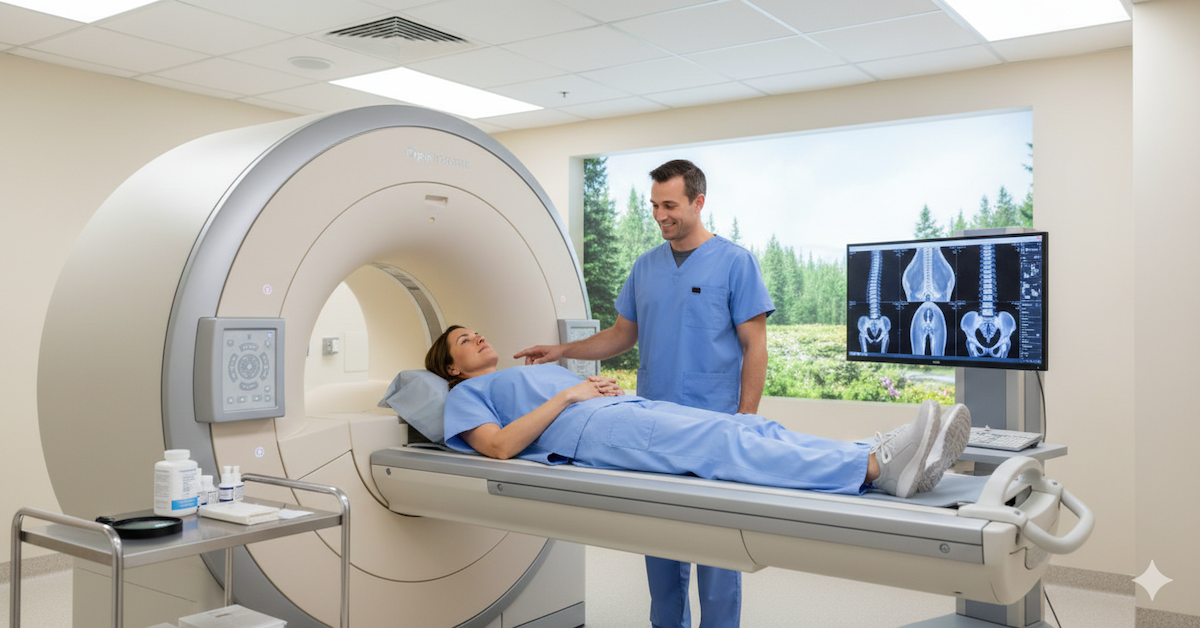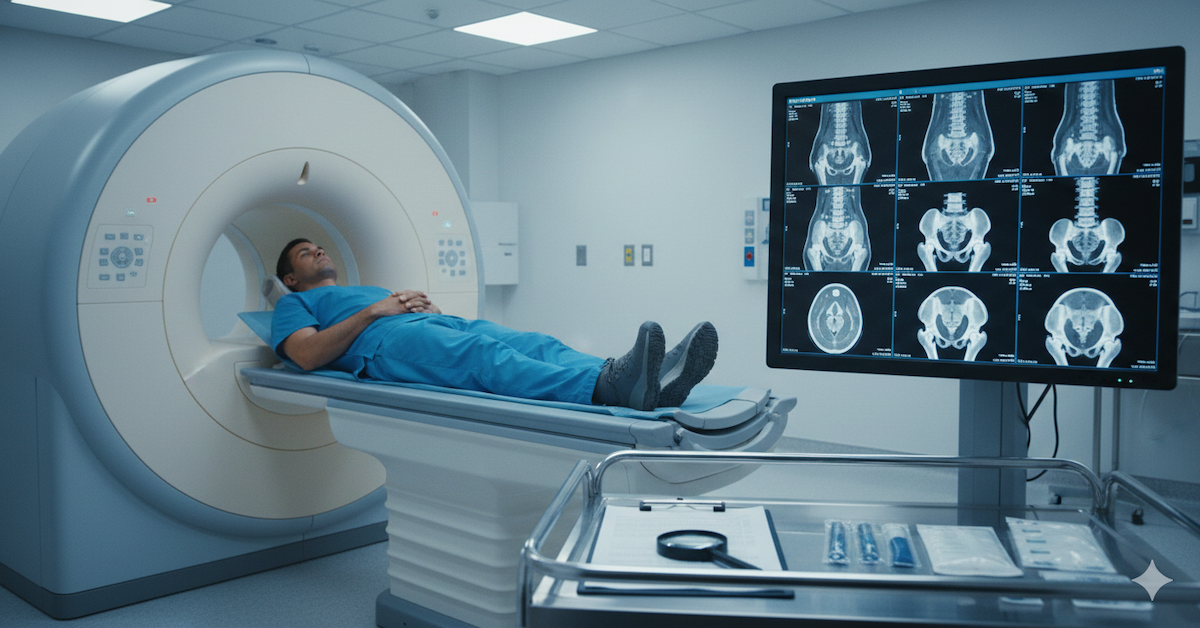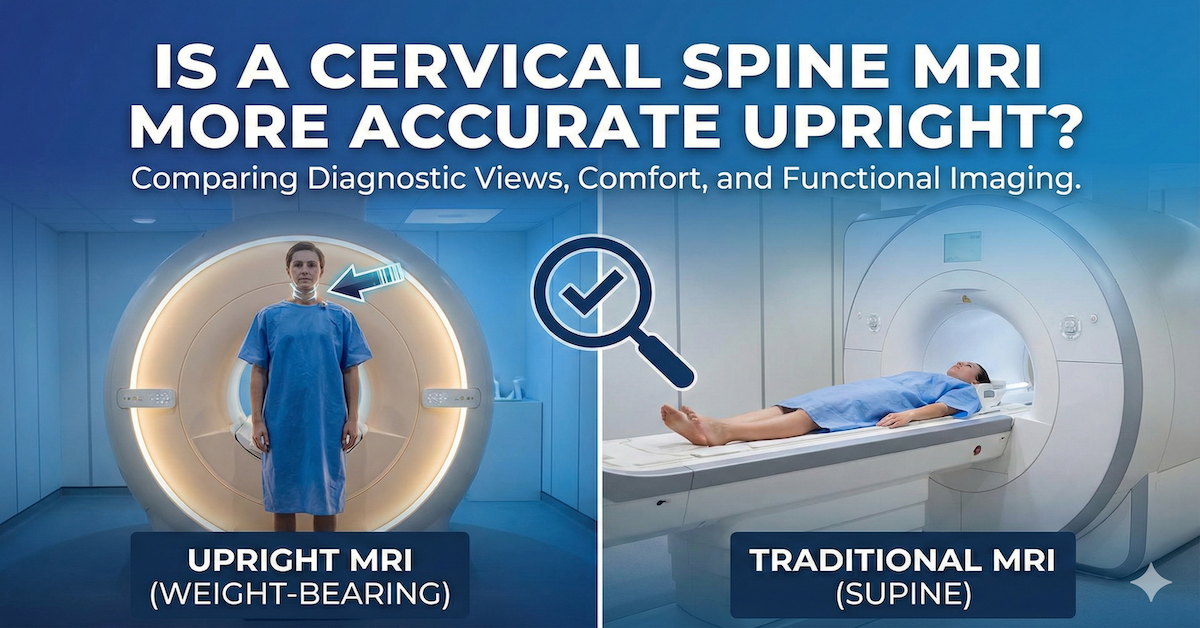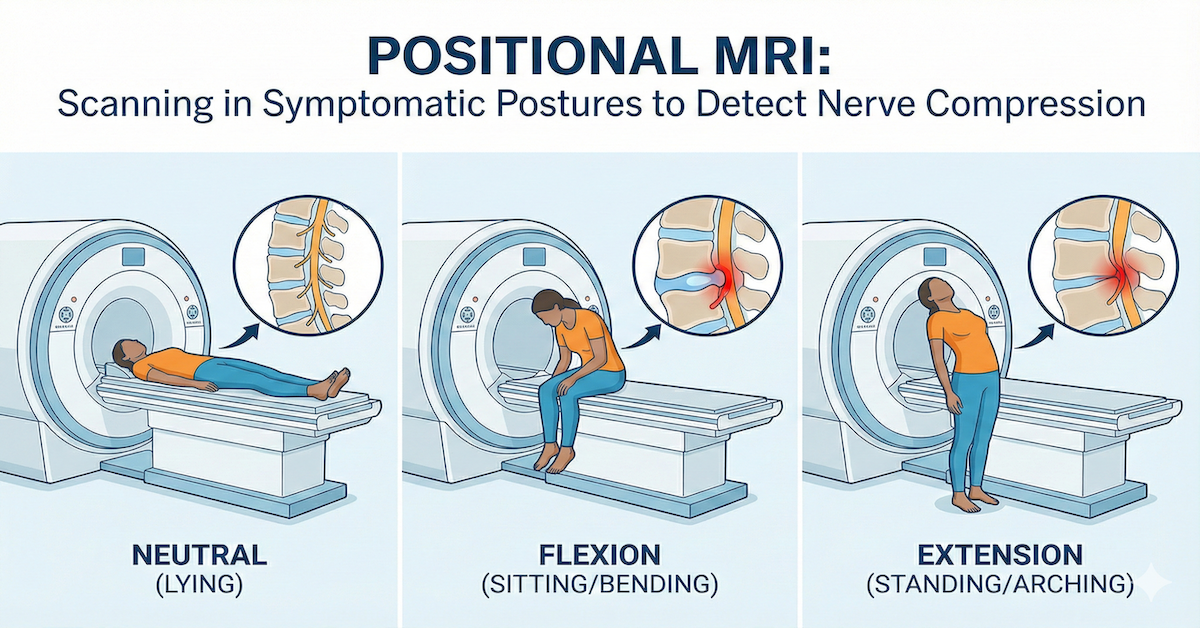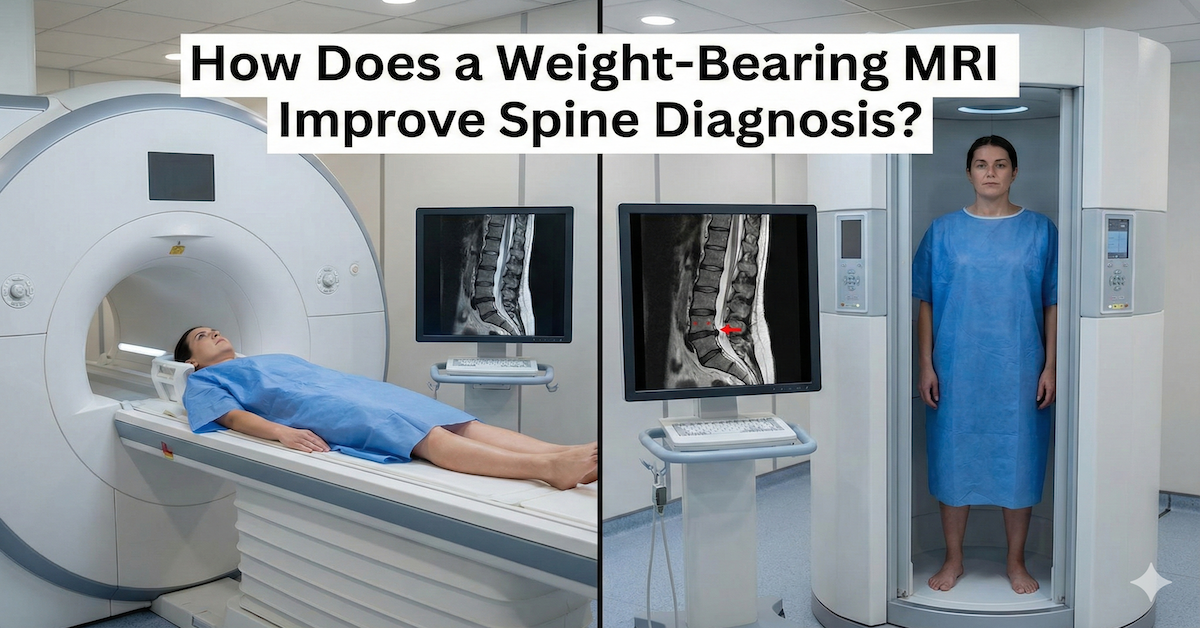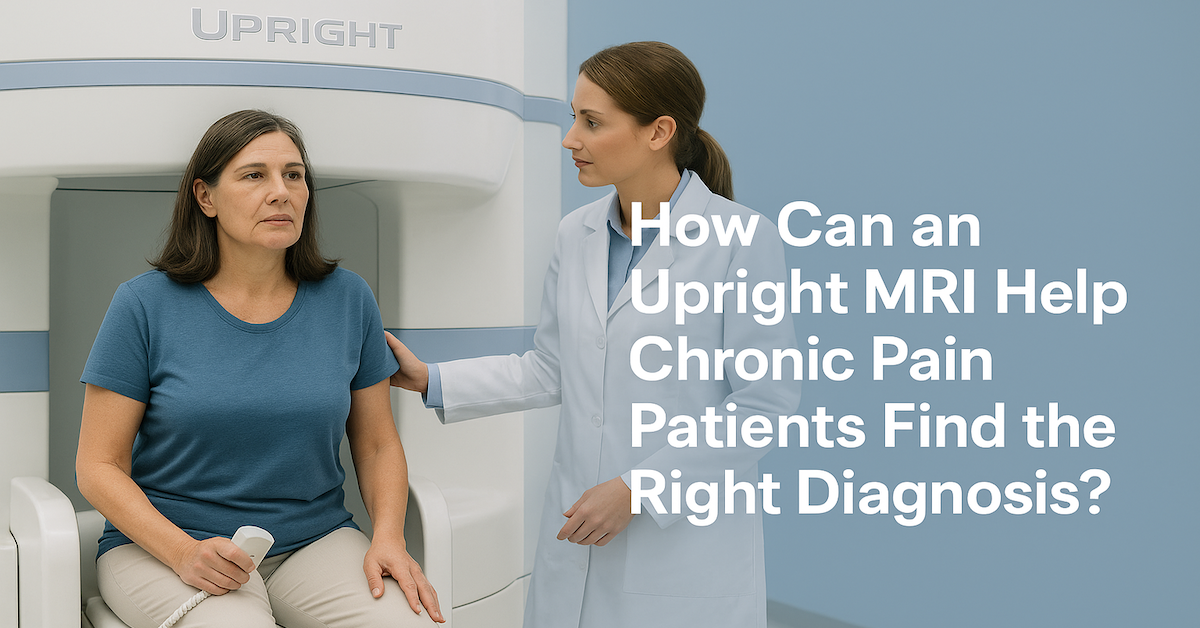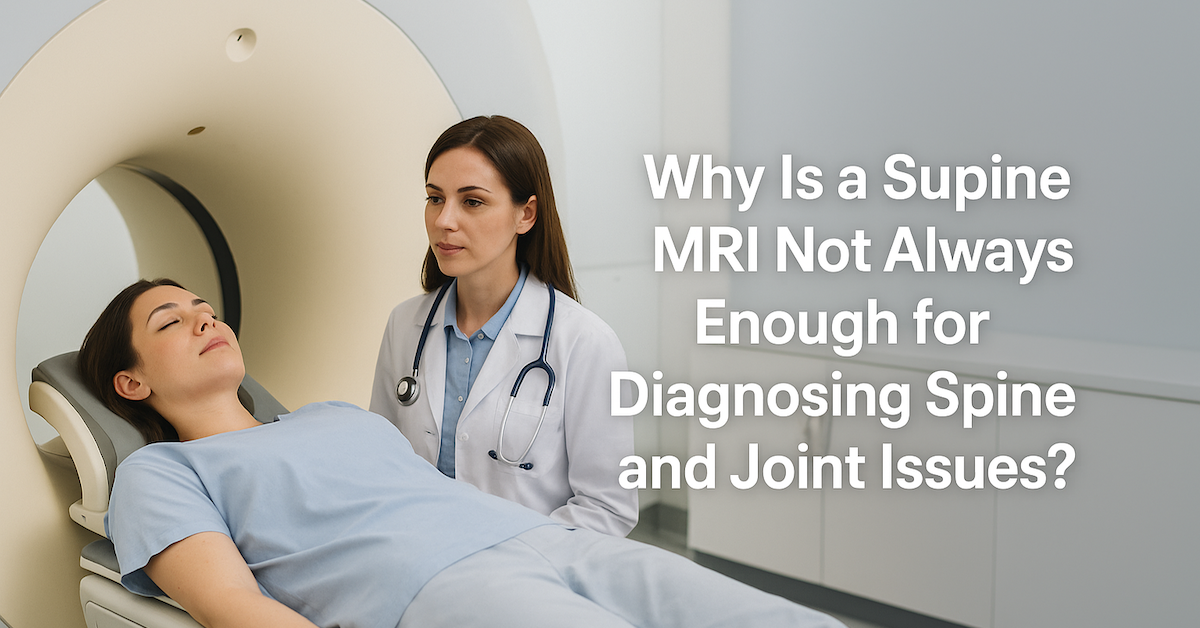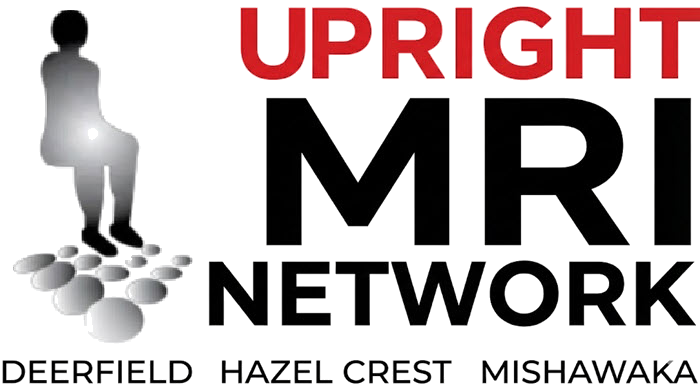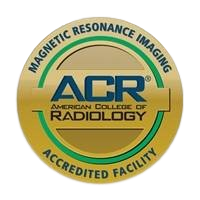Multiple Sclerosis: What it is and How it Can be Diagnosed

Multiple sclerosis (MS) is an unpredictable and potentially disabling autoimmune disease that develops over time, which in past years has made it difficult to diagnose definitively. In recent years, however, the MRI has revolutionized the way MS is detected.
If you think you may have MS, we at Upright MRI of Deerfield want you to know you don’t have to face it alone. Although it may seem scary, getting the correct diagnosis can give you peace of mind and improve treatment success. Our MRI is considered the most patient-friendly in the world, and we are ready to help. See below for ways to get in contact.
What is MS?
Multiple sclerosis (MS) is a disease that affects the brain, spinal cord and optic nerves that is considered an “attack on the nervous system”.
The condition is characterized as being a communication issue from the brain to the rest of the body, which means patients with MS typically experience symptoms like numbness or weakness in certain parts of the body, electric-shock sensations in the neck, unsteadiness, and difficulty in talking and seeing.
What is the cause?
MS develops when the immune system becomes inflamed and damages the nerve fibers that communicate within the central nervous system you with symptoms like numbness, weakness in certain pars of the body, or spasms.
How does the MRI detect MS?
The MRI has become the best non-invasive test to help diagnose MS. Using a large magnet, radio waves and a computer, MRIs can produce very clear pictures of specific parts of the body. In the case of MS patients, an MRI will show lesions in the brain that are the result of inflammation.
The Upright MRI advantage
At Upright MRI of Deerfield, we have the FONAR Upright® Multi-Position™ MRI, which is considered the most patient-friendly MRI in the world for several reasons:
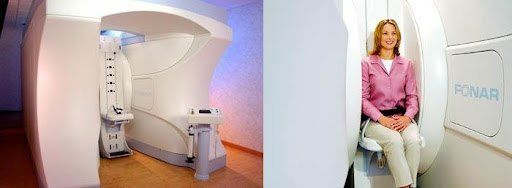
It is a truly open MRI: Traditional MRI machines often feel claustrophobic because they completely enclose you in a tunnel-like machine that is described as loud and frightening. Our MRI is different. Because there is nothing in front of our patients to block their vision, our patients have said they feel less claustrophobic and comfortable than in traditional MRI or other MRIs that claim to be open but are still partially enclosed. Patients can sit, stand, lay or bend comfortably and watch the TV in front of them.
More quiet: Traditional MRI sounds are described as “loud banging trash cans” which can be a pretty unpleasant and frightening experience for patients. At Upright MRI of Deerfield, ours is significantly quieter than traditional magnetic imaging scanners – all you hear is some low, rumbling noises. Additionally, our patients have access to a headset where they can talk to our technicians if they need anything while being scanned.
Multi-position: Although this particular MRI scanner is often recognized for its patient-friendly experience, the fact that it can scan patients is a significant advantage it has over other MRIs. Our MRI has the ability to scan patients in any position: sitting down, standing up, lying down, or bending. This is not only more comfortable for patients, but helps doctors gain a better understanding of the issue at hand because the MRI can zero in on the body part.
Better images: Because we can scan patients in any position, it allows for the production of more specific, better quality images that help doctors visualize the matter at hand more clearly.
More accuracy: Because the images are clearer and more specific, the accuracy of the diagnosis becomes more evident. The accuracy of the diagnosis is what truly matters at the end of the day, as we want to send our patients home with a clear understanding of what’s happening in their body and what next steps are.
Schedule your visit at Upright MRI of Deerfield
If you think you may have MS, you are not alone. Our staff at Upright MRI of Deerfield is ready to help get you answers. Please note: Once you are diagnosed with MS, multiple MRI’s are required per year so physicians can examine the progression.
To learn more about us or schedule an appointment,
visit our website.
SHARE THIS POST:
Leave a Comment:

The World's Most Patient-Friendly MRI. A comfortable, stress-free, and completely reliable MRI scan. We offer patients an open, upright, standup MRI experience that helps those who are claustrophobic and stress being in a confined area. Upright MRI of Deerfield is recognized as the world leader in open MRI innovation,
Our Recent Post
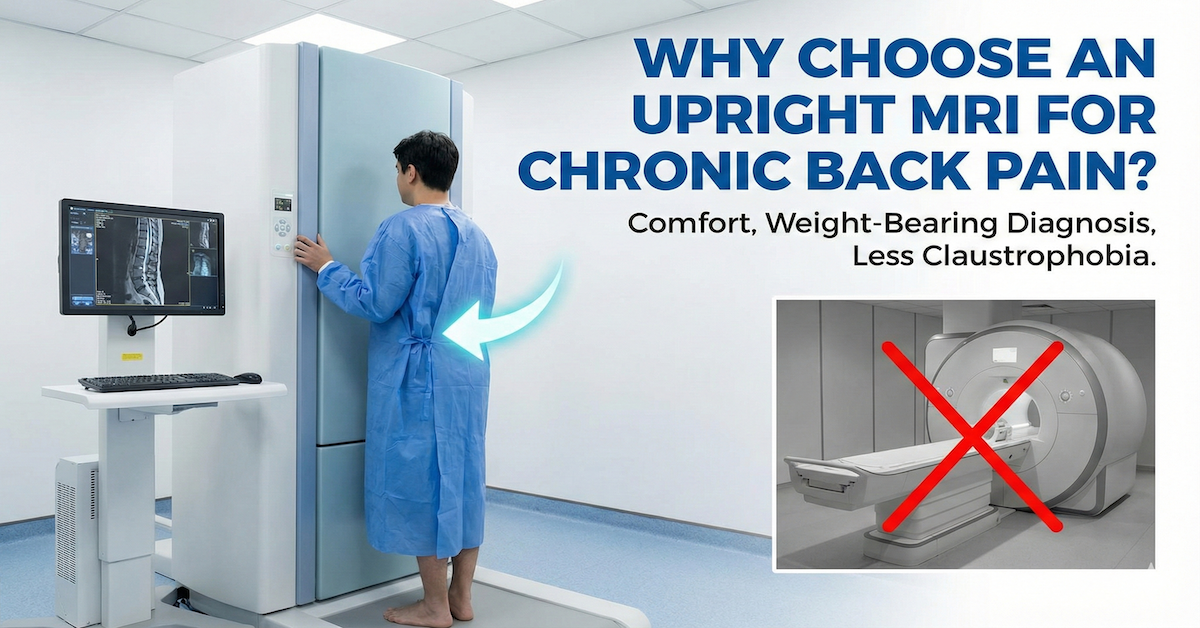
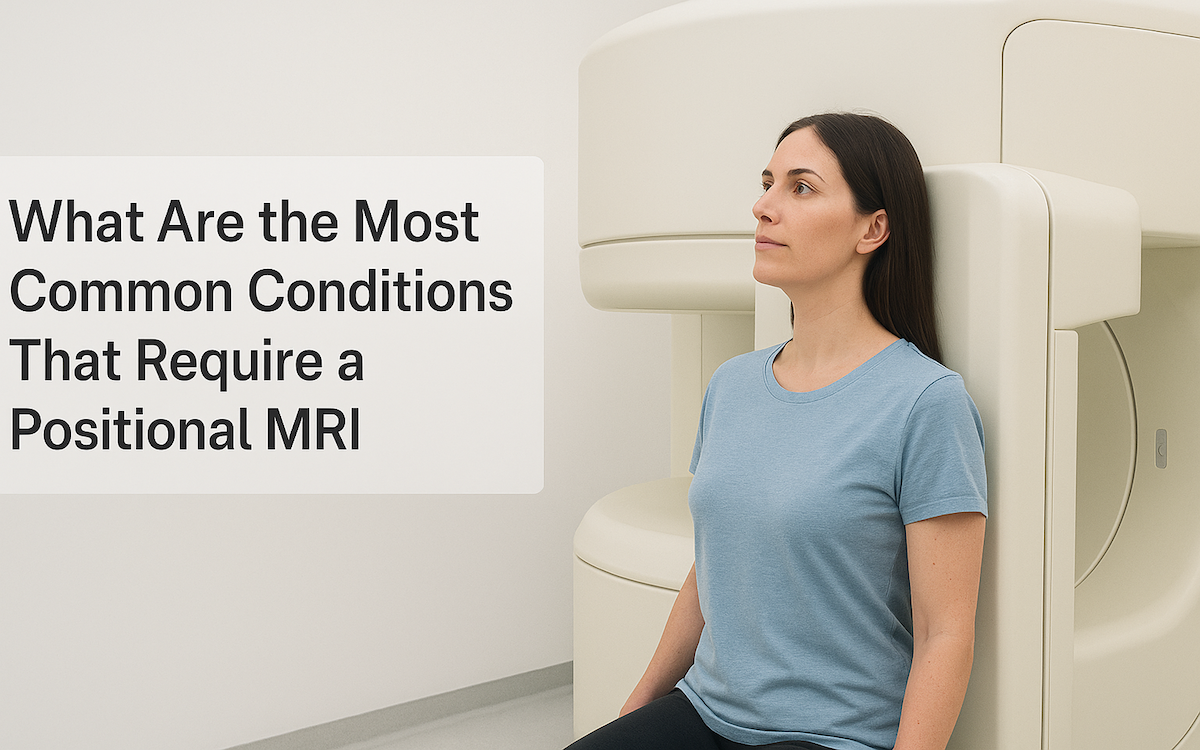
READ PATIENT TESTIMONIALS
Upright MRI of Deerfield.
Susan D.,
Highland Park, 39
I am going to tell everyone about your office! This was a great experience after I panicked in other MRI machines and had to leave. Thank you so much.

Judith B.,
Milwaukee, 61
I suffer from vertigo and other MRIs do not work. This was wonderful…absolutely NO discomfort at all. The MRI was so fast…I wanted to stay and watch the movie! Mumtaz was great. His humor really put me at ease. I’ve already recommended Upright MRI to friends.

Delores P.,
Glencoe, 55
Everything is so nice and professional with your place. I have been there a couple of times. My husband and I would not go anywhere else.


